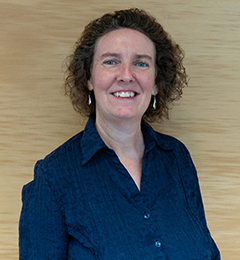
Interview with Dr. Kerstin Nundel
Meet our research team member Dr. Kerstin Nundel. Kerstin's lab studies how B cells, a type of white blood cell, become activated against the body's own tissues and cause lupus. Kerstin and I have been friends for almost 12 years! We first met when I was a graduate student and she was a postdoctoral fellow at BU. Kerstin taught me how to do flow cytometry, a technique that we immunologists use regularly to study white blood cells. It was my pleasure to interview her for our blog!
- Tell us a little about your career.
I was always interested in nature and how natural things work. Even complex biological issues in grade school were understandable to me. Therefore, it was obvious that I would attend University to study a biology related field. I started out studying environmental sciences at the University of Konstanz, Germany. However, a required course opened my eyes to this beautiful complex system in our bodies called the immune system. Everything I learned in that immunology class made sense and was easy for me to understand. So, I decided to get a master's degree in immunology. For my thesis project, I was fortunate to do my research at the Fox Chase Cancer Center in Philadelphia, USA. While finishing my master's, I got accepted to the immunology PhD program at Thomas Jefferson University, also in Philadelphia. And I’ve stuck with immunology and stayed in the US. I moved to the Boston area to train with Dr. Ann Marshak-Rothstein on the connection between innate immune receptors and the activation of autoreactive B cells, a topic I am still working on. I was recently awarded a grant from the National Institutes of Health to continue studying factors that influence autoreactive B cell activation and function.
- What first got you interested in studying lupus?
My interest in immunology was always driven by one of the most fundamental questions: How does the body avoid attacking itself? During my master's as well as my PhD research, I tried to understand this fundamental issue. I studied how B cells, the antibody producing cells of the immune system, know that they recognize self and what safety mechanisms are in place to deal with autoreactive B cells. Once I understood some ways that self-reactive B cells were restrained, I became more and more interested in understanding why these safety nets sometimes fail. To me, this is still the most intriguing question in immunology. And the best way to solve this puzzle is to study autoimmune diseases like lupus.
- What is your current research focus?
Right now, I am studying the role of innate immune receptors, like Toll-like receptors, in the differentiation of autoreactive B cells. Several years back, it was discovered that one of these TLRs, namely TLR9, has a protective effect in lupus, while activation of other TLRs, especially TLR7, is very pathogenic. We still don’t understand this difference in function, especially since both TLRs are necessary to make autoantibodies in lupus. Therefore, my research is focused on elucidating the protective features of TLR9 in B cells. I am convinced that a better understanding of this unique role of TLR9 will lead to better treatment options.
- What do you think is the future of lupus?
Lupus is a very complex disease with many different symptoms and manifestations. My hope is that future research will guide us to better stratify patient populations for clinical trials to increase treatment options for different patient populations. This will be an important step in personalized treatments for each individual affected by lupus.
- Any advice for people who want to learn about lupus, or for aspiring scientists?
Sometimes it is hard to accept that you may never achieve your most noble goal. In my case, I realized that we may never be able to prevent lupus or any other autoimmune disease. However, this realization made me even more determined to do my best to make a difference for lupus patients. So, my advice for any aspiring scientist: Aim high, don’t despair and persevere – there is always a light at the end of the tunnel, it might just be hidden around another corner!